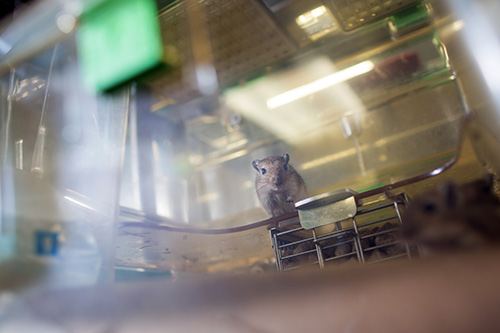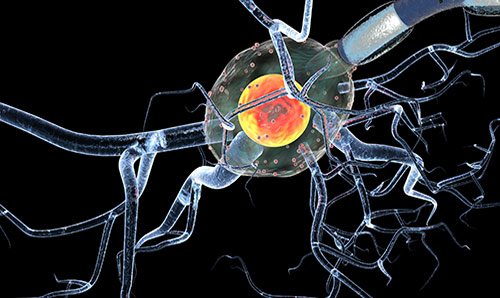
Animal research
At Manchester we're committed to research excellence and impact, as we look to bring positive change in societies and environments across the globe. To pursue this commitment, we accept that animals may be involved in our research – but only when it is essential and carried out with the highest level of ethical conduct.
To make the scientific progress needed to alleviate human and animal suffering and benefit society, our research must be supported by an understanding of disease mechanisms and the study of immunology, genetics and cell biology.
Research can only involve animals where there is absolutely no alternative and must follow UK regulation, which is among the strictest in the world.
Under the Animal (Scientific Procedures) Act 1986 (ASPA), three licences need to be held to conduct research on a protected animal: an establishment licence (PEL), personal licence (PIL), and a project licence (PPL). Every proposal must undergo an ethical review before it is approved by the Home Office and the project licence is granted.

Transparency and accountability
We ensure that all our work is fundamental to the understanding of human and animal health, and we continually drive forward accountability and openness in animal research.
We have developed a University strategy for communications and engagement (PDF, 216KB) to help guide us at all stages of animal research and maintain our reputation as one of the most transparent and accessible institutions on the issue.
Our pledge to openness
As a signatory to the Concordat on Openness in Animal Research, our University, along with 127 other higher education institutions, bio-industry companies, charities and research councils, is committed to transparency and public engagement on animal research.
Our University, a 'Leader in Openness' for animal research, is fully dedicated to the Concordat's four commitments. As an institution, we will:
- be clear about when, how and why we use animals in research;
- enhance our communications with the media and the public about our research using animals;
- be proactive in providing opportunities for the public to find out about research using animals;
- report on progress annually and share our experiences.
European Animal Research Association
In 2019, the University's communications lead for animal research joined a European Animal Research Association (EARA) working group. Comprised of specialists from across Europe, the group drafted a template for Non-Technical Summaries – the section of a project license accessible to lay audiences – as part of the European Commission's new commitment on openness and accessibility in animal research.
In 2020, the European Commission included the EARA guidance document (PDF, 184KB), produced by the working group, in materials supplied to member states before new reporting obligations began.
Animal welfare in research
At the University, we've established standards and governance for animal research based upon a culture of care and ethical conduct.
The Animal Welfare Review Body (AWERB) is our University committee responsible for the review and approval of animal research projects. AWERB can refuse or order changes to a research programme if it doesn't meet our standards for animal wellbeing. You can find more information on our ethical review process page.
Innovative research techniques are actively sought and promoted, as we look to reduce, refine, and replace the use of animals in research. The University's work in this area is highlighted in our '3R' case studies.
Our animal research unit has been accredited by one of the world’s leading organisations promoting the humane treatment of animals in science. Awarded by the not-for-profit Association for Assessment and Accreditation of Laboratory Animal Care (AAALAC) the accreditation is seen as a considerable achievement for the unit and the University. Read our news story about the accreditation.
Our pledge to a culture of care
We have a proud culture of care among our staff working with animals, based on collaboration and the highest standard of animal husbandry. That is why we are committed to pro-actively building and maintaining a sustainable environment where animal welfare, human wellbeing, scientific quality and transparency with stakeholders and the public are paramount.
This commitment reflects our desire to contribute to The University of Manchester’s vision of advancing education, knowledge, and wisdom, for the good of society
Our research
Find out about our animal research at Manchester.
Read more
What is animal research?
Learn the facts about animal research in the UK.
Read more

.jpg)






